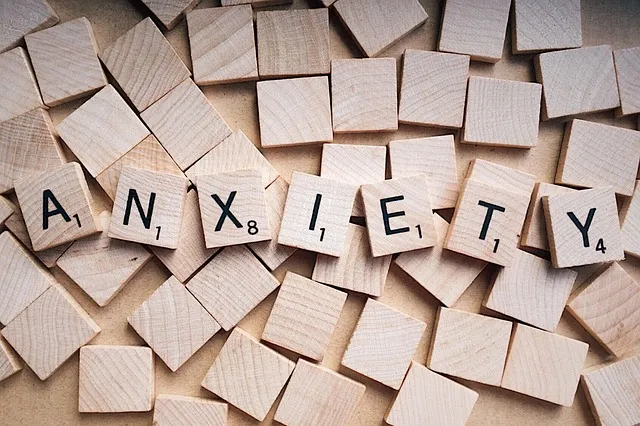The Lakewood Kaiser Permanente mental health center goes beyond acknowledging cultural diversity by adapting flexible visiting hours and training staff in cultural competence. This holistic approach ensures a safe, inclusive environment where patients from various backgrounds can openly discuss mental health issues with personalized support. By respecting diverse family dynamics and beliefs, the center enhances emotional healing and prevents depression across all cultures, setting a standard for culturally sensitive healthcare practices.
Cultural sensitivity is an essential aspect of modern mental healthcare, ensuring equitable and effective treatment for a diverse patient population. This article explores the importance of understanding cultural diversity in mental health services, using the Lakewood Kaiser Permanente Mental Health Center as a case study to highlight successful initiatives like flexible visiting hours, tailored therapy models, and staff training. We’ll also delve into best practices to enhance cultural sensitivity, fostering inclusive environments that address unique community needs.
- Understanding Cultural Diversity in Mental Healthcare
- Lakewood Kaiser Permanente Mental Health Center: A Case Study on Visiting Hours and Cultural Sensitivity
- Best Practices for Culturally Sensitive Mental Healthcare Services
Understanding Cultural Diversity in Mental Healthcare

Mental healthcare practices must embrace cultural sensitivity to effectively serve a diverse community. The Lakewood Kaiser Permanente mental health center, for instance, recognizes that visiting hours and appointment schedules may need to accommodate various cultural and personal preferences. Understanding cultural diversity goes beyond recognizing different customs; it involves appreciating how cultural beliefs and practices influence emotional healing processes and depression prevention strategies.
At the heart of this approach is fostering a safe and inclusive environment where individuals from diverse backgrounds feel comfortable discussing their mental health concerns openly. This requires mental health professionals to be well-trained in cultural competence, enabling them to offer personalized support that boosts confidence and strengthens resilience among patients from all walks of life.
Lakewood Kaiser Permanente Mental Health Center: A Case Study on Visiting Hours and Cultural Sensitivity

The Lakewood Kaiser Permanente mental health center provides a compelling example of how visiting hours can significantly impact cultural sensitivity in healthcare practices. By implementing flexible visiting schedules, the center acknowledges and respects diverse cultural beliefs and family dynamics. This approach is crucial for fostering an inclusive environment that promotes emotional healing processes across various patient backgrounds.
In light of the above, considering self-care routine development for better mental health and analyzing mental health policies through a lens of advocacy, such adjustments in visiting hours can positively influence patient outcomes. For instance, some cultures may prioritize collective family support during recovery, while others emphasize individual privacy. By accommodating these differences, the Lakewood Kaiser Permanente center enhances its ability to serve diverse communities effectively, ensuring that emotional healing processes are tailored to each patient’s unique cultural context.
Best Practices for Culturally Sensitive Mental Healthcare Services

Providing culturally sensitive mental healthcare services is paramount to ensuring effective treatment and building trust within diverse communities. At the Lakewood Kaiser Permanente mental health center, visiting hours are designed to accommodate the needs of various cultural backgrounds. This approach involves active listening, where practitioners pay close attention to patients’ stories, beliefs, and concerns without judgment. By creating a safe space that respects individual cultural expressions, the center fosters open dialogue, enabling patients to share their unique perspectives on mental health and well-being.
Best practices in this context include educating healthcare providers on cultural competency, promoting cross-cultural communication skills, and integrating evidence-based therapies adaptable to diverse cultures. Additionally, implementing policies that support flexible visiting hours, offering multilingual resources, and incorporating cultural elements into treatment plans can significantly enhance the overall experience for patients from different ethnic and social backgrounds. These strategies not only improve anxiety relief but also strengthen the relationship between healthcare providers and their patients, reflecting a commitment to Mental Health Policy Analysis and Advocacy. Furthermore, Conflict Resolution Techniques may be employed to navigate sensitive issues that arise due to cultural differences, ensuring a harmonious environment conducive to healing.
Cultural sensitivity in mental healthcare is not just a best practice, but an essential component of effective treatment. As demonstrated by the case study on the Lakewood Kaiser Permanente mental health center’s visiting hours policy, acknowledging and respecting cultural differences can significantly improve patient experiences and outcomes. By implementing best practices highlighted in this article, mental health professionals can create inclusive environments that foster trust and engagement among diverse patient populations. Embracing cultural sensitivity is a step towards revolutionizing mental healthcare, ensuring that services are accessible, accepting, and tailored to the unique needs of every individual.






